Discover more about DuoBoots sizing and get to know the anatomy of our leather boots.
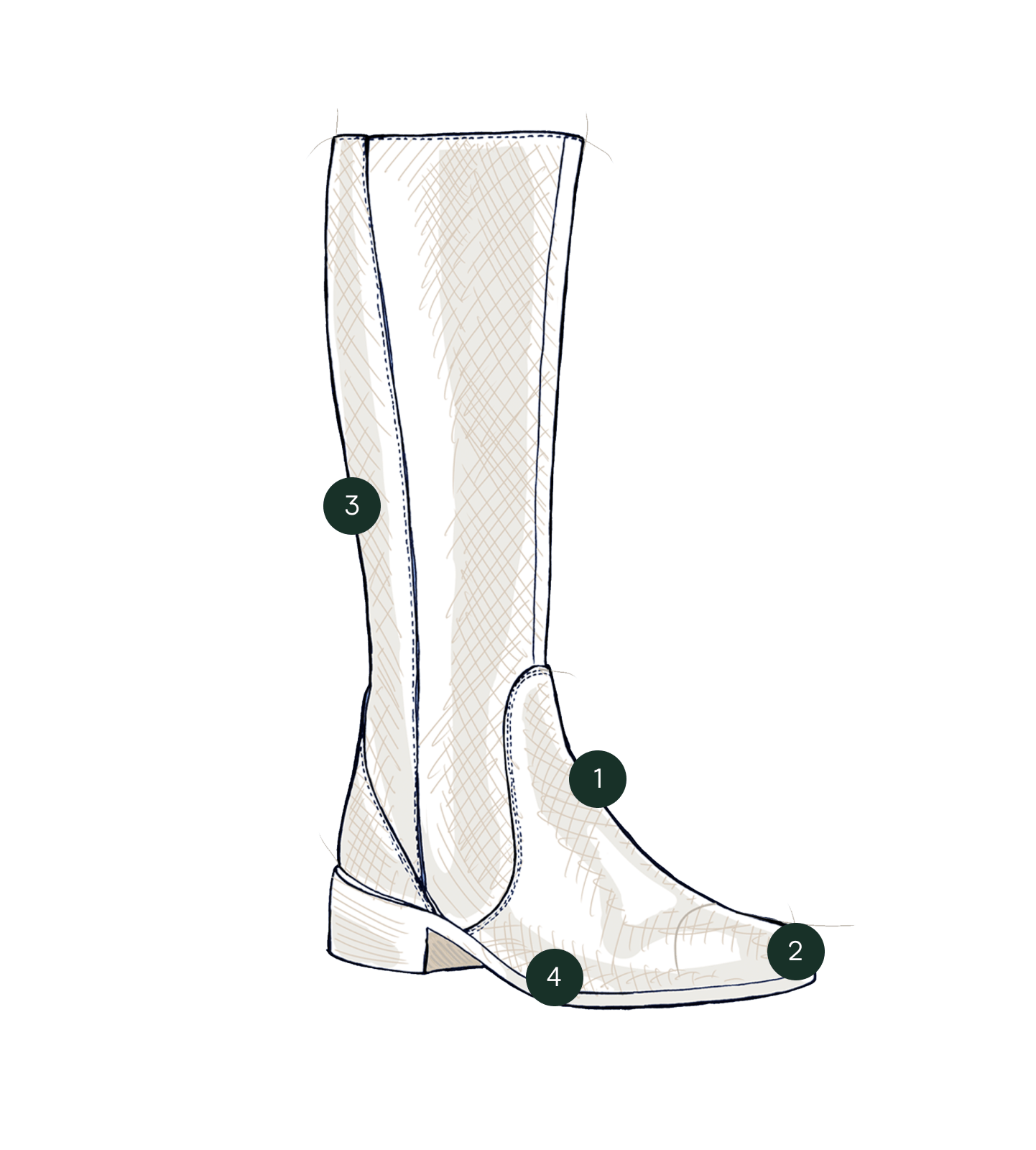
Get to know your boots
1. Instep
The instep covers the top of your foot – all our boots have zips that come down to the very bottom of the boot, this will make it easier to get your foot into the boot if you have high insteps. If the boots are too tight try a size up.
2. Toe
At DuoBoots we offer a few different styles of toe shape – rounded, almond, and pointed – if you are in-between sizes and want a more pointed toe it may be more comfortable to size up. Reach out to our customer service team who will be able to assist you further.
3. Shaft
The most important part of our knee high boots! We measure the shaft from the top of the heel to the very top of the boot. The shaft is where we do the majority of our customisations – depending on the style, they will come in one or three different heights, but every style has our signature eight different calf sizes. Read more on our sizing pages.
4. Foot Width
All our boots have a medium width around the ball of the foot – find the exact measurement in our handy size guide. (Click on the Boot Sizing tab above)
Find your perfectly fitting knee high boots
DuoBoots aren’t your average pair of boots! Each style comes in 72 different size combinations – incorporating foot size as well as calf size - so we understand that finding the perfect fit can be more complex than your average shoe shop.
Our shoe fit uses standard sizing – so go for whatever shoe size you normally go for. For pointed-toe boots such as the Freya or the Saffron and heeled boots such as the Belmore we suggest sizing up in the foot.
More info on shoe sizes? Keep reading below.
Understanding Shoe Sizing
We understand that every foot is different. All our sizing is based on standard international measurements - however if you are unsure on sizing, it is always best to check.
Using our foot measurement chart above - check the length of your foot from the top point of your foot right to the back of the heel.
For the width measure from the base of the big toe to the base of the little toe - this will go diagonally down across your foot - rather than straight across!
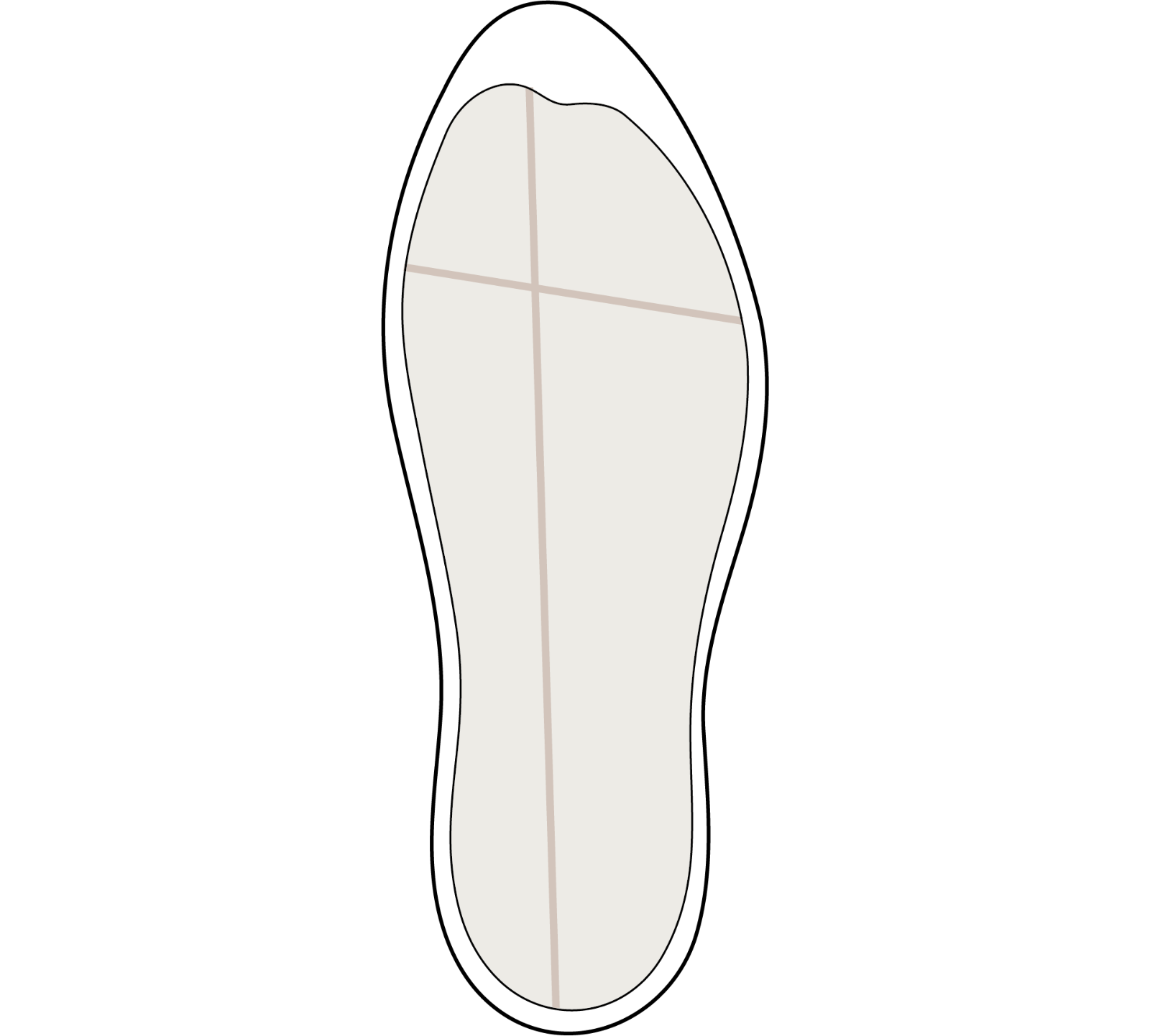
The best way to measure your calves is with a tape measure - with bare legs, place the tape around the widest part of your calf. Repeat on both legs. If they are different, which is common, take the average of the two. If you are in-between sizes, we suggest going for the lower of the two, as all of our boots have an extra 3cm of stretch built in.
Not sure on the best fit? Get in touch with out Customer Service Team.
DuoBoots uses time-honoured craftsmanship techniques to build our handmade boots – uncompromising in comfort, fit, and style. As each pair of boots is made by hand in our workshops in Portugal each pair of boots may differ slightly. With wear, the leather will mould to your foot and calf.
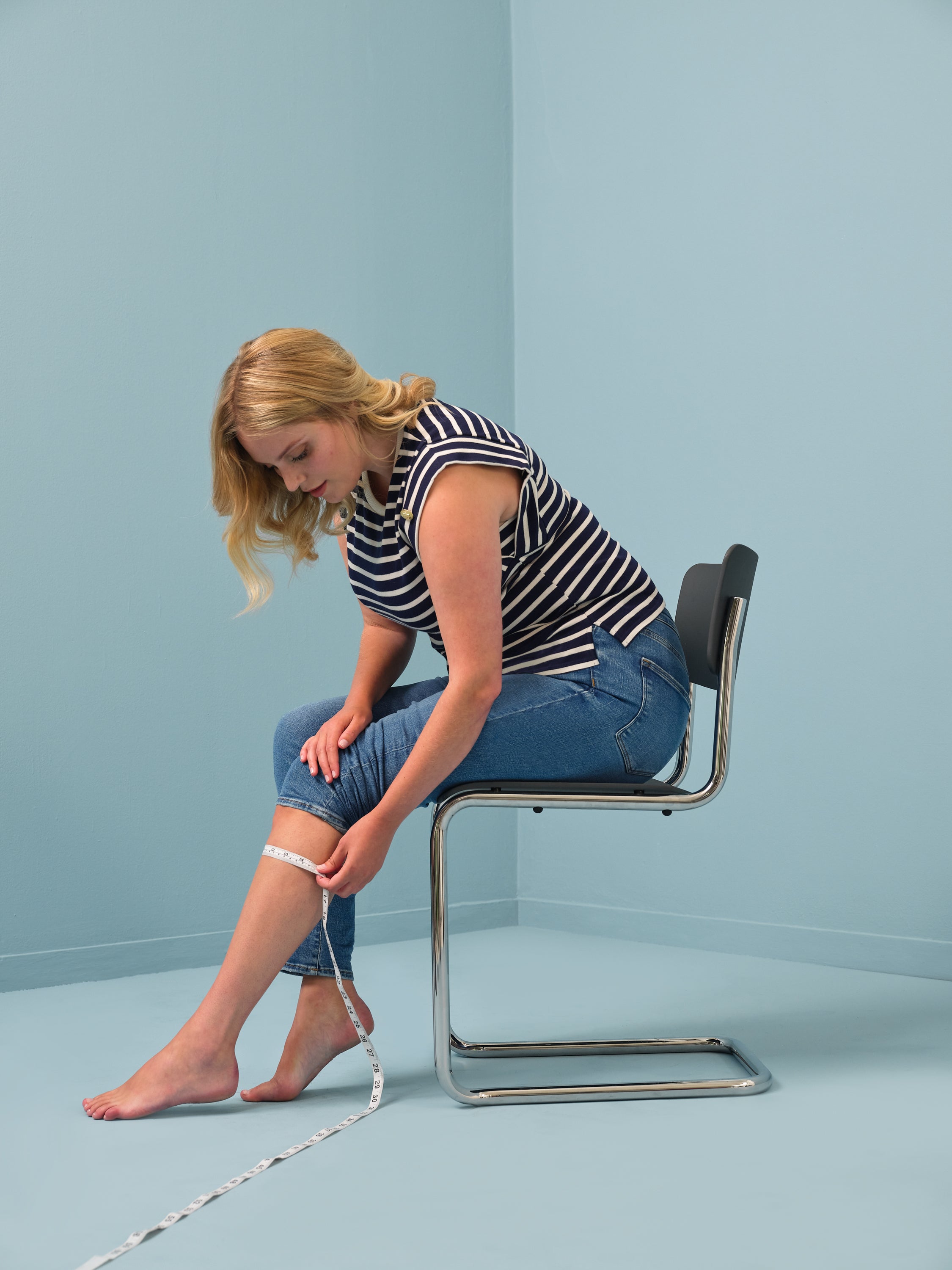
DuoBoots are as close to custom made boots as you can get. Each of our styles come in 72 different size combinations. Please read our sizing information as closely as possible to ensure you get the best fit.
Calf Size
Our calf sizes are available in 30cm to 50cm - all boots have built in stretch panels so can accommodate up to an additional 3cm. Choose the best size for you - each of styles is different, with some being designed for a relaxed or tighter fit. Your calf size won't change between styles, but if you prefer to wear your boots over jeans, or you like a super-slim fit, size up or down accordingly.
Boot Height
The height of the boot is critical, as this determines where the widest part of your calf will sit. Our most popular styles come in three different heights - Petite, Standard, and Tall. To find the height of your leg - measure from the back of your knee to the bottom of your foot.
Foot Size
We have nine shoe sizes - we use standard sizing on all boots with a calf size under 44cm. Foe 44cm and up - all boots have a wider foot bed. For pointed-toe boots we suggest sizing up in the foot – when wearing heels your feet naturally are pushed into the toe area, so a little more room in those areas always helps.
Remember – getting your fit 100% right the first time doesn’t work for everyone. Everybody is different – and height, calf shape, calf size, and ankle size all contribute to boots fitting differently. If you are unsure whilst ordering reach out to our friendly customer service team via chat or email, and they will be able to help you find your dream knee high boots.
If your boots really don’t fit – you can always exchange for a new size in our fast, free, and easy exchange process.
To preserve the look and extend the life of your handmade DuoBoots, we recommend taking care of your boots through proper cleaning and storing.
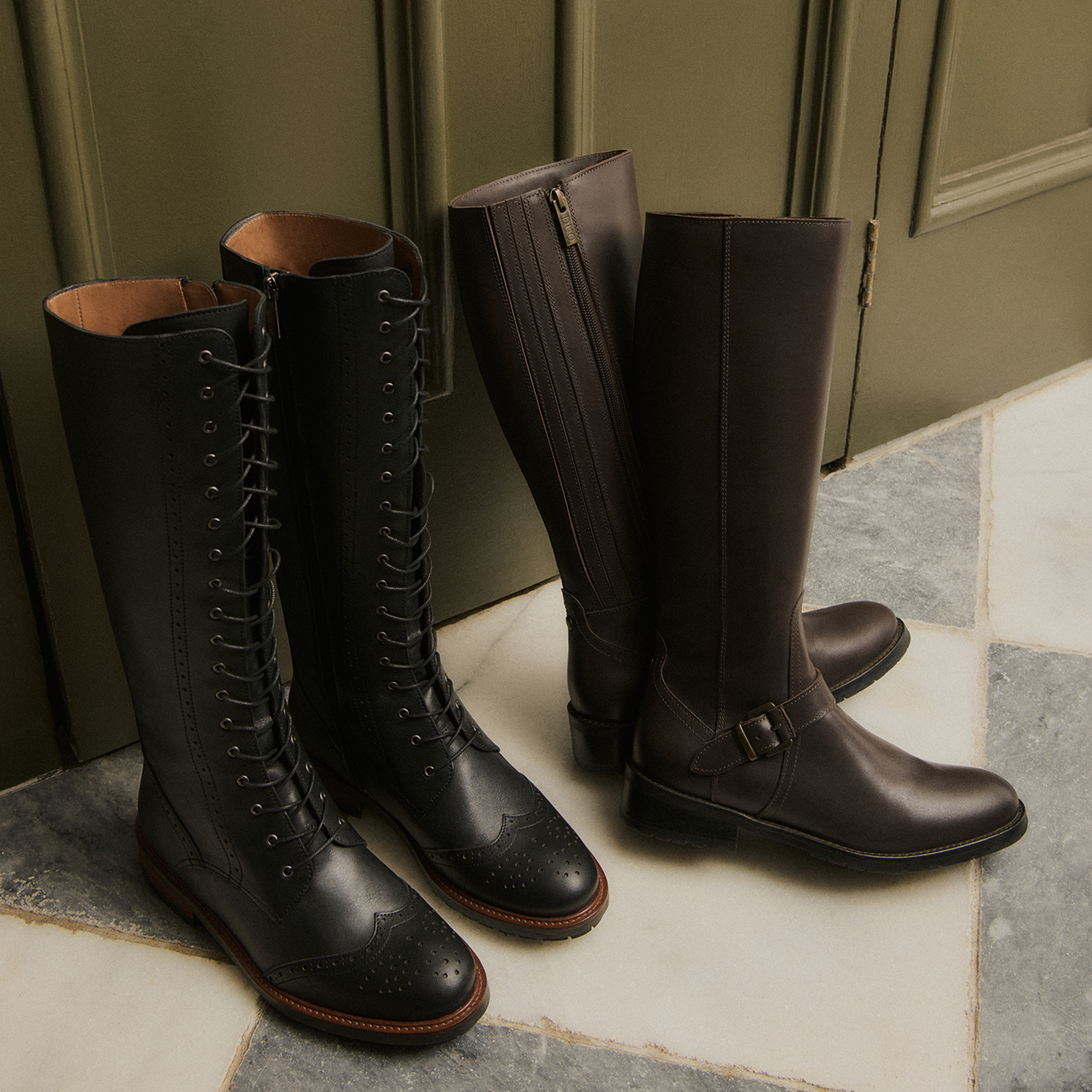
· Clean regularly – brush off dust with a damp cloth
· Ideally, apply a leather protector before wearing.
· Apply a leather conditioner every few months to keep them supple
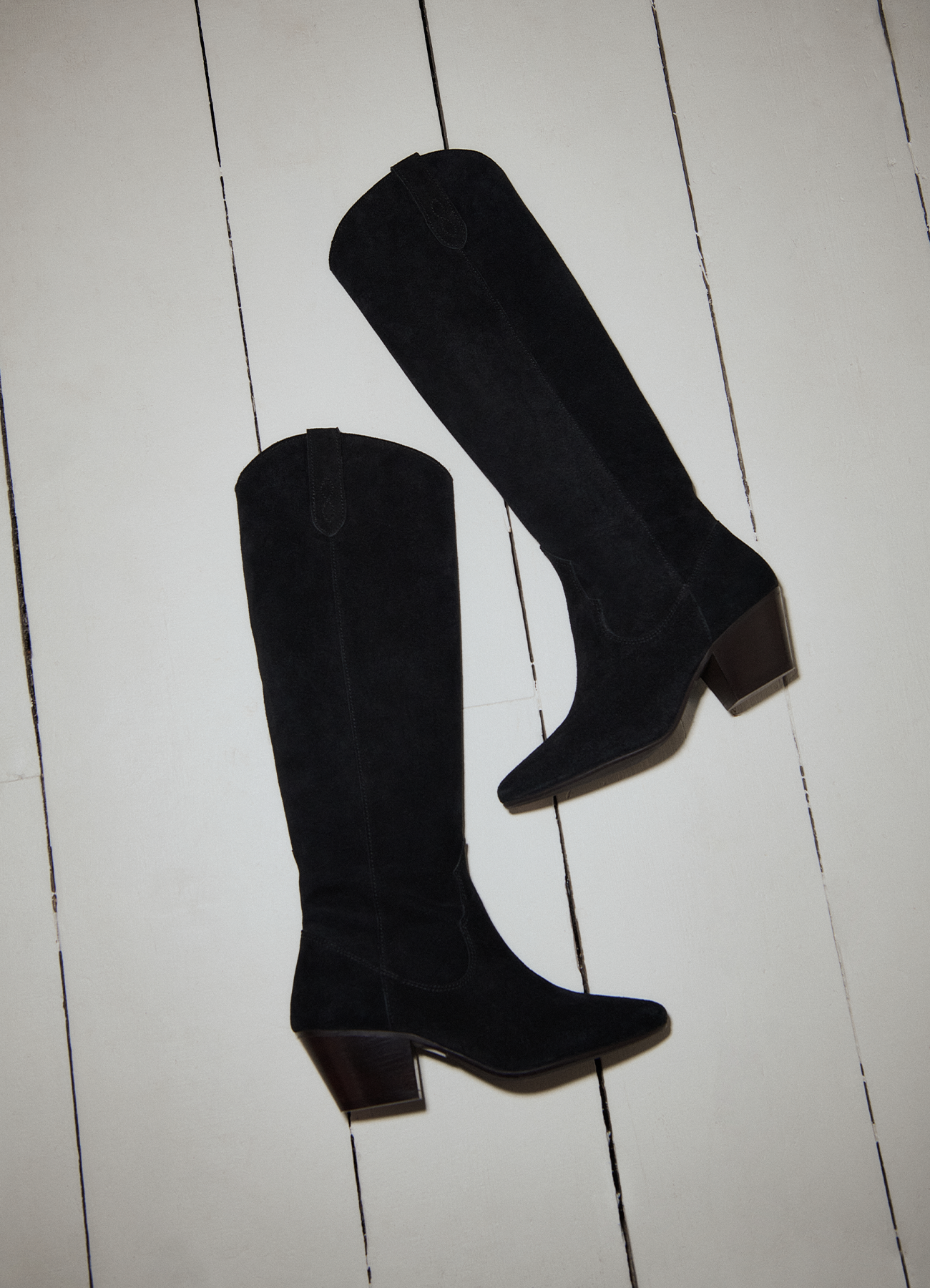
· Clean regularly – brush off dust with a dry brush
· Apply a suede protector before wearing.
· Apply a suede cleaner every few months to keep them fresh.
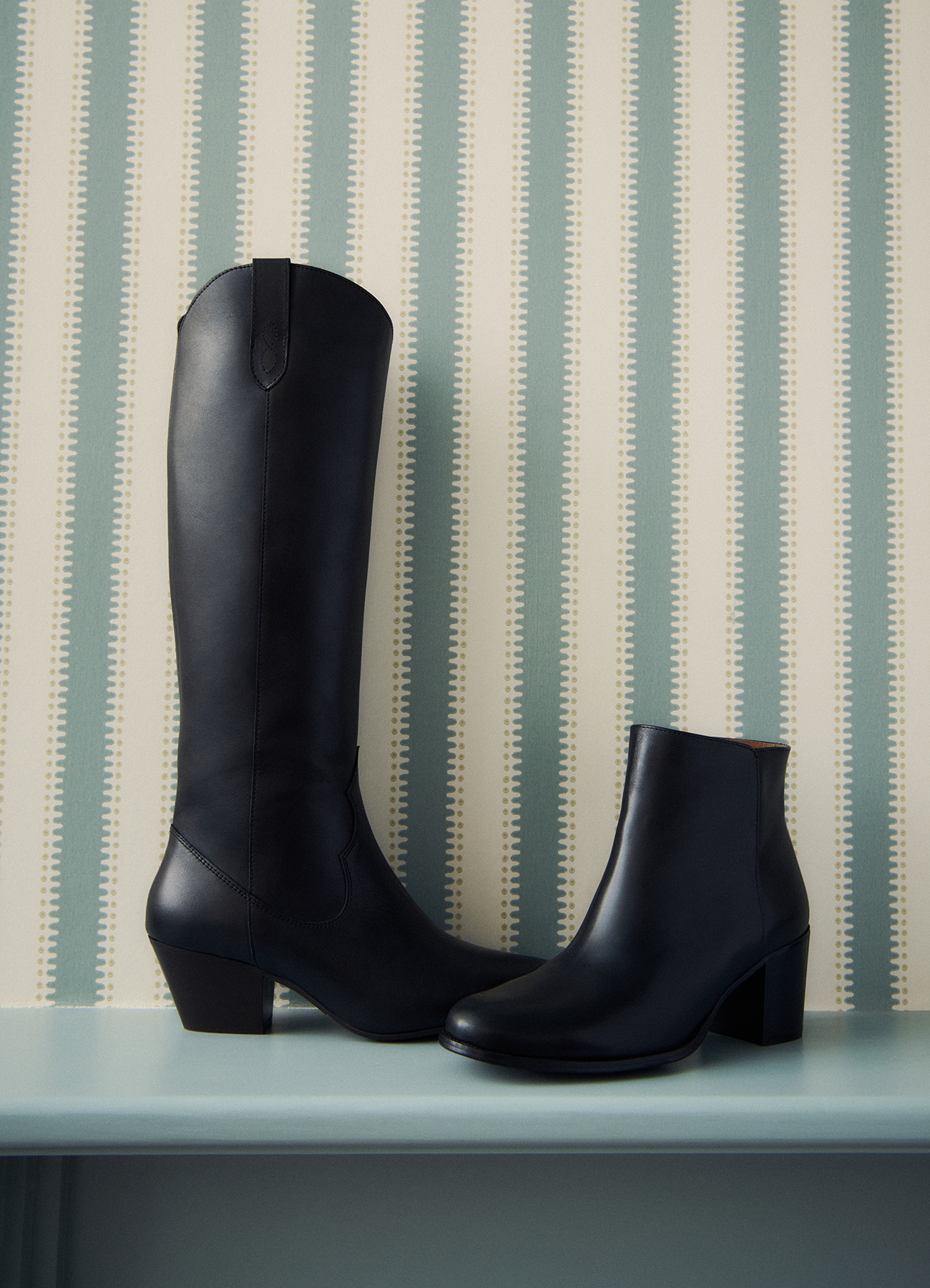
· Store your boots upright to maintain their shape
· Use boot trees or scrunched-up newspaper keep them from folding over
Avoid getting your boots wet – they are made from natural materials which can change if exposed to excessive water. If they go get wet, place scrunched-up newspaper in them as soon as possible. Do not put them next to a radiator or other heat source as this will dry the material out and potentially shrink.